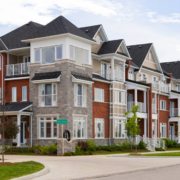What Rights do Alabama Tenants have to Avoid Eviction After COVID-19?
Alabama Governor Kay Ivey has signed a moratorium on the final step associated with all evictions. In the order, it is stated that “All state, county, and local law enforcement officers are hereby directed to cease enforcement of any order that would result in the displacement of a person from his or her place of residence.” Therefore, law enforcement officers cannot evict you from your home, regardless of whether you have a mortgage and have been foreclosed on or are a tenant.
Federal Eviction Ban
The 120 federal “moratorium” or “stop” is still effective on evictions for inability to pay rent for specific housing types, including the following:
- Renters accommodated in public housing of Section 8
- If you lease a home from a landlord with a “federally backed mortgage,” which means that if you reside in public housing, then your landlord is probably a “Housing Authority” for the city or region where you reside.
You may benefit from the federal eviction ban in the following cases:
- Your rent is determined by your income
- You live in “subsidized” housing
- You pay below the market rate for rent
If the federal eviction ban is applicable to your situation, then your landlord cannot petition for a NEW eviction for 120 days, or the period between March 27th and July 25th, 2020. However, this rule is applicable only to nonpayment of rent-related evictions. It is still possible to evict you for other reasons.
Furthermore, the landlord cannot levy late fees charges or other penalties related to your nonpayment during this period.
The landlord must give you a notice of a minimum of 30 days prior to filing an eviction for rent nonpayment after July 25th.
Governor’s Eviction Moratorium: Frequently Asked Questions
Am I still liable to pay my rent?
Yes. You are still liable for your mortgage or rent payment, under Governor Ivey’s order. Additionally, you must follow any other provisions in your mortgage or lease agreement.
What if I cannot afford to make rent payments?
While you cannot be evicted at present, you should try to make the payments when you can, as the landlord can try to evict you after the governor’s order expiration.
When will the Governor’s order expire?
The order does not have an end date right now, so it is not known when it would expire.
What happens if my landlord gives me a notice or an unlawful detainer (eviction filing)?
In the above case, you can undertake the following:
- You can still make your rent payment if you receive a notice for unpaid rent
- If you receive an eviction notice, you should still file a response
- Alabama courts may resume hearings after May 15th, 2020, and the Supreme Court has left this decision up to the counties
Helping Tenants Stay Safe and Pay Rent is in Your Best Interest
As a landlord, the best scenario for you is for your tenants to remain healthy and continue to be employed, allowing them to pay rent. The section below shows some suggestions that can enable you to keep your building free of coronavirus, even if your tenants are working from home and the kids have an unanticipated break from school:
- Install hand sanitizer dispensers near elevators and doorways
- Ensure that the building’s common areas are thoroughly cleaned more often (including, playground equipment, if there is a playground in your building complex)
- Post signs educating tenants about infection control
- Post signs asking delivery personnel to leave packages outside unit doors, rather than making direct contact with residents
When to Enforce Rental Agreements and When to Be Lenient
Many terms of the rental agreements in your building remain unaffected by the COVID-19 pandemic. It is well within your rights as a landlord to evict tenants for bringing unlawful substances into your building, vandalizing common areas, or routinely violating noise-related rules.
However, if your tenants are late on their rent payment, you should be more understanding in case they are forced to delay rent payment due to work disruptions related to the COVID-19 outbreak. If employees are required to remain at home without pay for a significant time, it is possible that many tenants might be unable to pay their rent.
The inability to find childcare if schools close might also cause some tenants to lose their employment. It is a good idea to at least meet with the tenant and talk about their financial difficulties before deciding to move to eviction.
You could even send out a request form for an extension on rent payment and ask tenants to submit it to you if they are unable to pay the rent due to circumstances related to COVID-19, such as unpaid leave from work or closure of schools.
Speak to a Knowledgeable Attorney Today
Alabama laws on evictions and tenant rights are confusing, and it is easy to make costly mistakes for people without the knowledge of these laws. For help with landlord-tenant issues in Alabama, it is best to get in contact with an experienced attorney as soon as possible.

